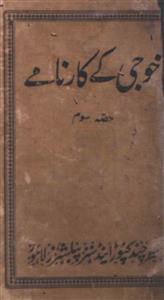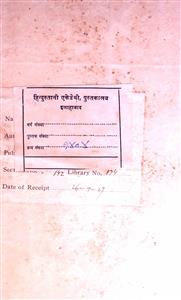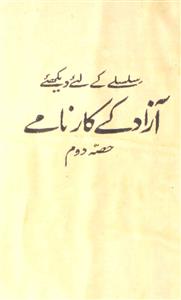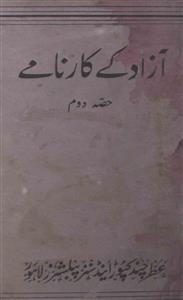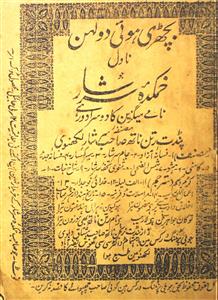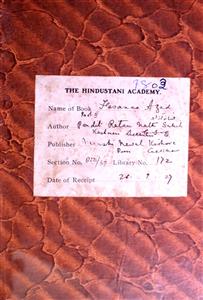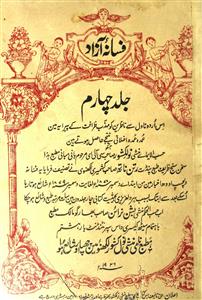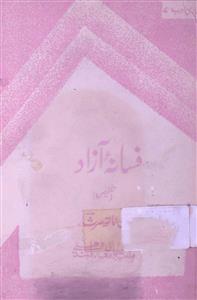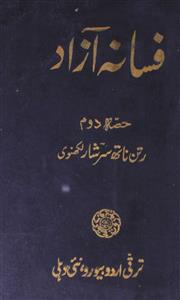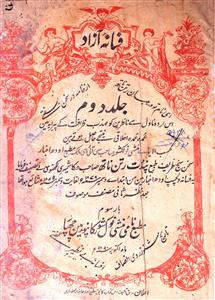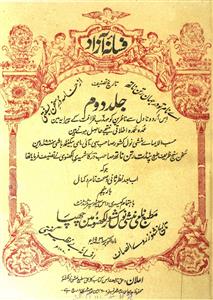 For any query/comment related to this ebook, please contact us at haidar.ali@rekhta.org
For any query/comment related to this ebook, please contact us at haidar.ali@rekhta.org
About The Author
An important name among the prominent Urdu writers is Pandit Ratan Nath Sarshar. His lineage was that of Kashmiri Pandits. His father died in Sarshar's childhood and his mother continued to take care of him. After completing his primary education, he entered the college but could not get any degree and had to leave the college. Then he started teaching in a school in Khelri district. The love of reading and writing was immense. He was always attached to books and as a result he kept in touch with the issues of his time. His first articles were published in Awadh Panj and Marasala Kashmir. Then he became associated with many magazines and newspapers, such as "Awadh Akhbar", "Riyadh Al-Akhbar", "Maraat Al-Hind" etc. When Munshi Nawal Kishore published "Awadh Akhbar", he became its editor. It is to be remembered that the installments of his famous work "Fasana-e-Azad" continued to be published in it. Then he separated from Awadh Akhbar and moved to Hyderabad at the invitation of Maharaja Krishna Prasad and became the editor of Dabdab-e-Asifi.
Ratan Nath Sarshar had a great attachment to Muslim civilization, society, culture, morals, theory, etc. The majority of those who met him were Muslims. Hindus and Muslims were well aware of the complexities of society. Sarshar’s personality perfectly reflected in Fasana-e-Azad, in which a declining civilization is depicted. If one wants to see a picture of the conditions that Lucknow was going through, this book is enough. Its two characters, Azad and Khoji, fully reflect the society of Lucknow.
Sarshar had a special connection with English novels. He must have read Cervantes’s Don Quixote, because his characters in the book reflect the same ideas. The beauty of Sarshar is that he also looks after religious matters. In fact, in order to reflect society, it is necessary to create intensity in expression. Sarshar must have done the same, as a result of which the society of Lucknow came to a standstill in these two roles besides other roles. This is a great literary masterpiece and there are very few lucky artists in Urdu fiction whose characters are alive and well. Both of these dedicated roles have become ideal and a perfect reflection of the situation. It is a different matter how much Sarshar took from Cervantes and not. But whatever he took, he put it in a new color and harmony and in such a way that everyone became his own answer.
Other works of Sarshar are also noteworthy, such as "Shams-ul-Duha", "Jam-e-Sarshar", "Amal Nama-e-Rus", "Sir Kehsar", "Kamini", "Alif Laila", etc. "Shams al-Duha" is actually a geographical discussion and is an English translation. "Amal Nama-e-Rus" is also a translation of an English book by an English tourist. "Jam Sarshar" came out as the antithesis of "Fasana Azad"."Kamni" focuses on Hindu family customs. "Alif Laila" is a translation of the Persian story "Alif Laila" and "Khudai Faujdar" is a translation of Don Quixote. Sarshar was truly a dedicated part of Urdu language and literature. He died in 1895 when he was in Hyderabad.
 For any query/comment related to this ebook, please contact us at haidar.ali@rekhta.org
For any query/comment related to this ebook, please contact us at haidar.ali@rekhta.org
